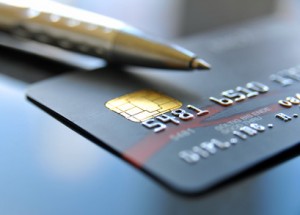Roy Keane’s supposed philosophy in relation to football at least was neatly summarised in the catchy phrase: ‘Fail to prepare, prepare to fail’. People talk these days about what they call ‘unsustainable debt’ usually referring to the national debt of countries such as Ireland or Greece but sometimes in the context of personal debt.
So what about applying Keane’s mantra to dealing with issues of personal debt, whether unsustainable or just fiercely problematic? How can the idea of ‘preparation’ help to overcome our personal debt problems?
Set a goal
Clearly if we are to prepare to take some actions related to our troublesome finances, we need to first set a plan to get out of debt and identify a clear goal that sets out what we want to achieve at the end of the day – a mission statement, if you like. Let’s state a simple goal: ‘to regain control of my personal finances within one year’. Don’t like that goal? Then decide on a goal of your own and put it into words. Write it down and memorize it! However, for the moment let’s go with the goal we have. We can always change it as we prepare to succeed.
Review your finances
 First of all we need to determine what our current financial situation is and then identify specific achievable actions that will help us to achieve our goal. Our current situation can usually be summarised in a couple of pages. We need to know our income, our household expenses and what our debts are. If we have a mortgage we need to know the financial details about it: monthly payments; balance owing; remaining term; type of mortgage; arrears (if any) and so on. As for solutions, let’s avoid the instant quick fixes such as winning the lottery and concentrate instead on the small steps we can take, leaving the lottery to dreamers. Cutting to the chase there are some obvious preparatory actions we should consider when we are unable to pay our debts.
First of all we need to determine what our current financial situation is and then identify specific achievable actions that will help us to achieve our goal. Our current situation can usually be summarised in a couple of pages. We need to know our income, our household expenses and what our debts are. If we have a mortgage we need to know the financial details about it: monthly payments; balance owing; remaining term; type of mortgage; arrears (if any) and so on. As for solutions, let’s avoid the instant quick fixes such as winning the lottery and concentrate instead on the small steps we can take, leaving the lottery to dreamers. Cutting to the chase there are some obvious preparatory actions we should consider when we are unable to pay our debts.
Increase income
- What about taking in a lodger to get some rental income for your household?
- Can we check that we are getting all the benefits to which we are entitled such as housing benefit, tax credits and children’s allowances?
- Can we increase our working hours, change our shift, work at weekends or take a second job so as to increase our take home pay?
- Can we seek promotion at work so as to get a wage increase?
Can we reduce our spending?
- What about cutting up all our credit cards and store cards?
- Can we shop around for better rates for utilities such as electricity & gas?
- Can we cut down on our lifestyle expenses by for example quitting smoking, reducing our drinking or curtailing our socializing?
- Can we change our shopping habits and see if we can reduce our weekly shop by going to discount stores for our housekeeping needs?
- Can we do without a car and rely solely on public transport and the occasional taxi?
- Can we stop eating out?
- Can we avoid expensive foreign holidays?
Can we get help and advice from others?
- Can we discuss our debt worries with our spouse, partner and children?
- Can we compile a monthly household income and expenditure statement with the help and buy-in of our family?
- Can we seek advice from our bank manager?
- Can we talk to our creditors and seek to reschedule or restructure our borrowings?
- Can we talk to CAB, a debt advice charity or an insolvency practitioner and get independent expert advice as to what we should do?
Even if there are only a few of the actions above that we can take, at least we are trying to get on top of our finances. This type of preparation will stand us in good stead if we decide to consult with an insolvency practitioner and will help us to focus on what needs to be done to address our situation and to prepare for success.
